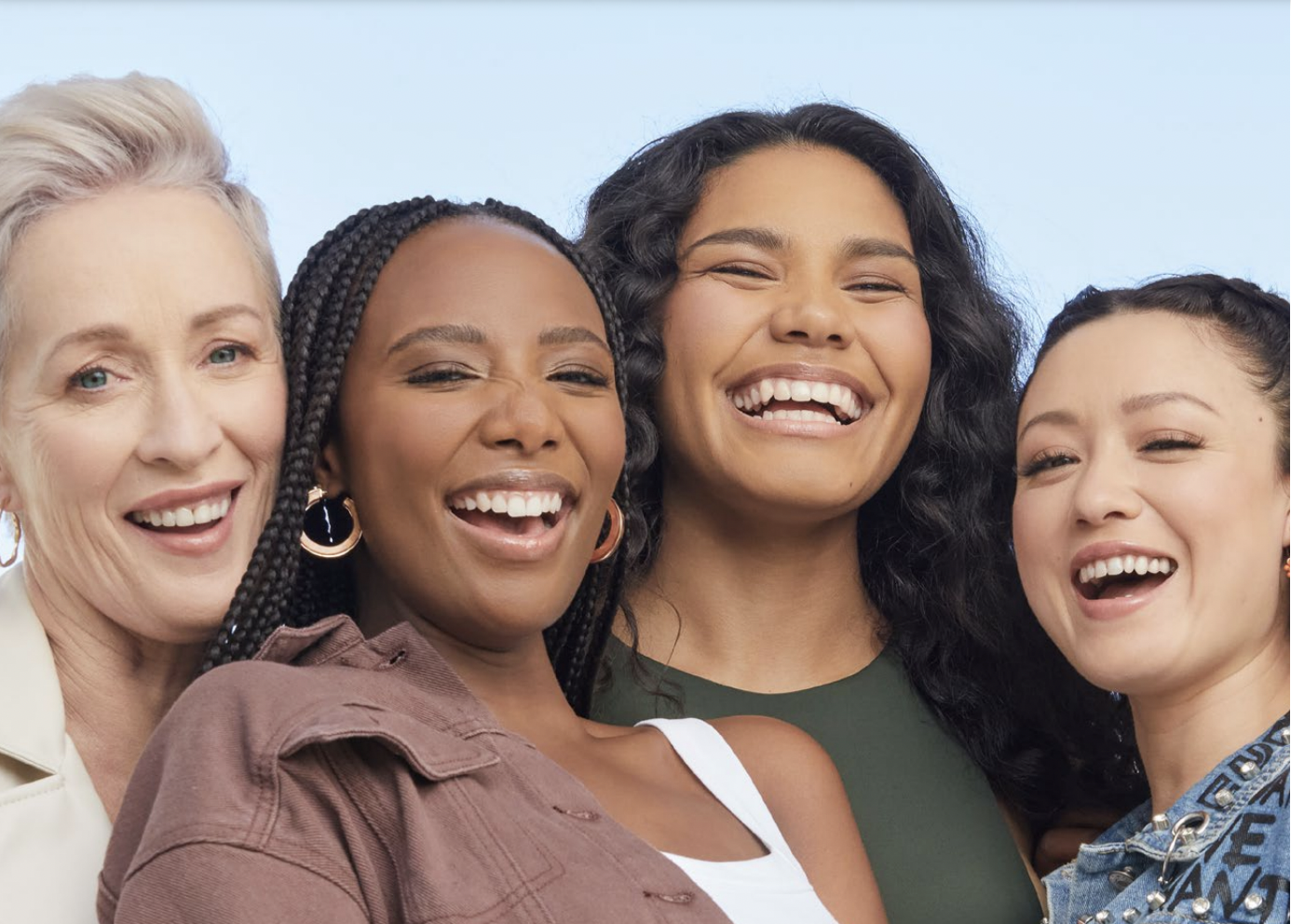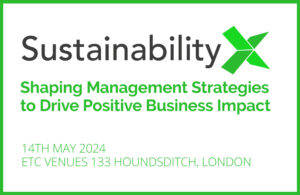A special panel at SustainabilityX, held 14 May 2024, will look at the business case for eco-friendly products and ethical practices. Ahead of the event, Katie Searles sat down with Natalie Deacon, head of purpose and sustainability at Avon International, to find out how the retailer is doing the right thing by the women in its supply chain; the women who sell its products; and the women who use them.

Q: As a beauty retailer, is it challenging when moving towards more sustainable formulations?
There are really exciting opportunities to improve the sustainability of both formulation and packaging.
From a formula perspective, our work there is really focusing on how we can make material switches or ingredient switches that are kinder to people and planet, and where performance isn’t impacted, or performance is even better.
For example if we can switch to organic materials or upcycled or recycled materials, they have a lower carbon footprint, and you’re keeping materials in circulation longer, so they have a lower total life cycle impact. There’s a lot of work that goes into investigating and then making those switches. It’s a key part of our sustainable materials strategy.
We’re also looking there at how it is not only the right thing by the planet, but also by people. We’re doing a lot of work to make sure we’re maintaining human rights through the supply chain. Looking at something like palm oil – which the beauty industry only uses in small quantities – it’s not just the deforestation and biodiversity loss, but there are also risks around human rights. By moving to traceable and certified palm we can improve visibility and raise standards. We’re also working with other organisations to tackle challenges such gender based violence in those communities.
Q: And how does packaging fit into your sustainability efforts?
Packaging is a really big area of focus for us. We’ve got stretch targets on recycled plastic content – over the whole portfolio we are aiming for 50% by 2030. And 100% of our products will be in packaging that is reusable, recyclable or compostable by 2030.
One of the things we’re doing this year is taking all of the cello wrap off our products. Consumer behaviour and perceptions are changing: in the past it was deemed that you needed that cello wrap to protect the package.. This year we are moving to a tamper-evident label – just a little sticky thing, top and bottom so people know it is in prime condition.
We’re trying to do away with as much packaging as we can and we are trying to raise awareness of the need to recycle. People are pretty good at putting household waste in the recycling, but once something that goes in a bathroom, it’s less likely to be recycled – because people haven’t got a recycling bin in the bathroom. Depending on which piece of research you read, we’re still only seeing like 10 – 20% of bathroom waste going into the recycling.
The other area that’s important for us is making sure that we’re connecting with our core mission. Avon’s core purpose is to create a better world for women which is a better world for all. The core of our brand and business is focused on progress for women – through providing opportunities to earn and learn, through championing the causes that matter. As part of our broader sustainability journey we’re looking for ways to benefit women and their world. The project we’re undertaking to tackle gender-based violence in palm oil sourcing is a good example. Avon is a member of Action for Sustainable Derivatives (ASD), a collaboration that tackles environmental and social issues relating to palm and palm derivative supply chains. The Respect in Palm project supports women palm workers in Indonesia, who may face gender-based violence.
We’re also working with female leaders and women-led organisations on more sustainable solutions. For example in the Philippines, where plastic waste is a really big problem, we have worked with a co-operative with a high number of female workers who collect in plastic waste and convert it into lumber bricks that are then used for shelters. It’s that kind of connection that’s really important.
Q: Avon also set a target to reduce your water use – 40% by 2020 and then a further 5% next year. How are you going about that? What’s been successful? What have you learnt?
We’re in the second phase of our environmental sustainability goals. When we first started to set, monitor and track goals, we were very much focused on our scope one and two carbon footprint, as well as water and waste from our operations. We started a lot of great work on that from the 2010s onwards.
That’s really built into business as usual now. It starts in the factories, moving to renewable energy sources and making sure we are maximising efficiencies, so we haven’t got any leaking pipes and we’re not wasting energy. For example through greater efficiency during production and cleaning, we significantly reduced our water use in our Poland factory last year.
We’re proud to have zero waste to landfill across our operations. One way we’ve done this is to keep material in circulation for longer. For example the leftover wastewater sludge from some of our production is used as soil fertiliser for planting along local highways.
Q: As Avon have been working on this since the 2010s, was that driven by consumers looking for cleaner and greener products? Or did you forecast that there were going to be regulations coming down the line? Or even for those pre-mentioned efficiency gains?
It’s really a mix of things. Avon was founded 138 years ago on the premise of providing earnings opportunities for women. Our women live on this planet, and our sustainability vision is a better world for women and for all.
A sustainability strategy starts with a materiality assessment. This is to work out what matters to us, what matters to the people that matter to us. That then shapes our priorities.
Our earlier sustainability strategy was very much focused on paper, waste, water and carbon from our emissions.
Now when we look at our materiality today, it’s very different to what it was back then. We have a much greater understanding of not just what the impact of we’re doing in our operations, but the end-to-end life cycle of our products and their use.
Q: Coming back to paper then, how have you changed the iconic Avon brochure and how much paper Avon uses now?
That’s been a really interesting journey. About 20 years ago, we asked – “Is this volume of paper sustainable?” Initially, it wasn’t necessarily about reducing paper usage, but it was about making sure that it was sustainable sourced. We did that. But now we’re on the next phase to digitise as part of Avon’s transformation journey.
This is a really good example of where customer expectations, representative expectations, commercial aims, and sustainability aims all come together. Our representatives – the women selling Avon products – tend to be more productive when they’re digitally enabled. We work on digital inclusion and digital skills with them. They tend to run more cost effective, efficient businesses and be more productive and make more money for themselves.
The brochures that we use are about 10% of our total carbon footprint. By accelerating that move to digitisation, we’re supporting our commercial aims and supporting environmental needs.
It’s about moving people to digital – it’s about producing fewer brochures, with fewer pages in – but also recognising, as other retailers have seen, that we need to be careful about how we take people on that journey. People often still want something to look at, they want to sit down in the evening with a glass of wine and look through the brochure, so it’s making sure we’re just getting that balance right.
It has to be about this omni-channel experience, and recognising that a customer isn’t digital, or paper, or even retail. They mix and will bounce around multiple touch points as part of their experience.
Registration for Deacon’s panel, Embrace Sustainability. Empower Retail: Understanding the business case for sustainability, is open now. For more information about SustainabilityX, held on 14 May 2024 at 133 Houndsditch, click here.
SustainabilityX is part of RetailX Event’s Spring Festival, the full agenda will be released in the coming weeks.








